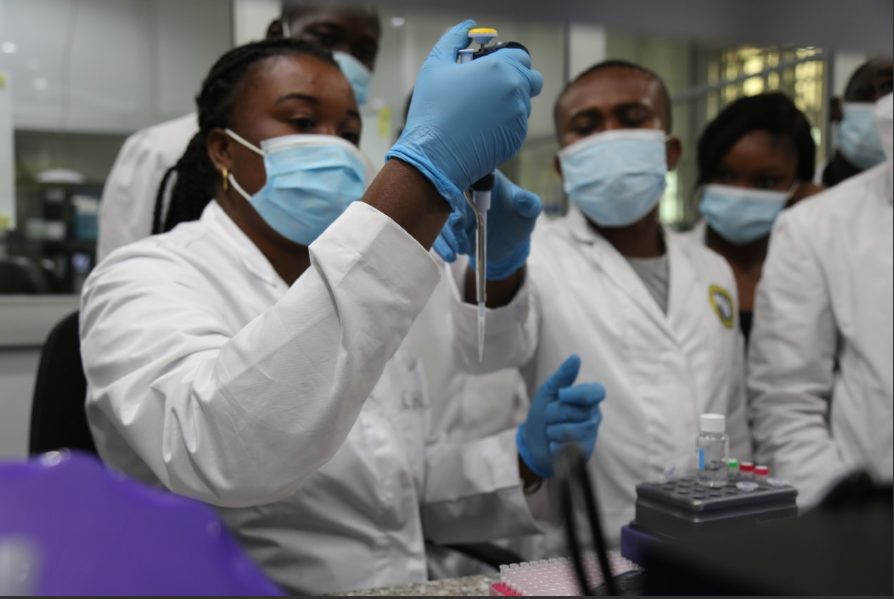As the Africa Centres for Disease Control and Prevention (Africa CDC) marks it’s sixth anniversary since its launch, it presents us an excellent standpoint to reflect on the enormous growth and development that has been accomplished. At the time of Africa CDC’s founding in 2017, three years ahead of the COVID-19 pandemic, the continent was battling other disease outbreaks, including Ebola virus disease, Yellow fever, Lassa fever, Rift Valley fever and others. At the time, the pathogen genomics program was only a dream awaiting actualization. The program was launched in 2019, three months before COVID-19 was declared a global pandemic.
Africa CDC had set itself an ambitious goal with the program; to ensure that all 55 Member States of the African Union (AU) had the tools, the skilled staff, and the data infrastructure to get the best out of critical pathogen genome sequencing technologies.
When a disease emerges, scientists could take the pathogen causing that disease and determine the exact sequence of nucleotides, or bases, in its DNA. In this way, they could track the pathogen’s evolution and monitor the spread of an outbreak.
The Africa CDC’s genomic sequencing plans were scarcely conceptualised when COVID-19 broke.
The disease proved to be a double-edged sword for the organization’s genomics program. On the one hand, COVID-19 wreaked health and economic havoc in countries, stretching Africa CDC’s capacity to aid. On the other, it injected urgency and momentum into its aspirations to empower public health institutions with genomic technologies.
“We were able to use COVID-19 as an opportunity to establish and strengthen our systems,” notes Dr Yenew Kebede, Head, Division of Laboratory Systems and Networks at Africa CDC.
Pathogen genomics proved critical for public health surveillance and the scientific scrutiny of disease outbreaks in Africa. In laying bare COVID-19 genetic make-up, scientists could keep politicians and public health decision-makers abreast of the rise of any new variants.
By October 2020, Africa CDC launched the Africa Pathogen Genomics Initiative (Africa PGI). The four-year “catalytic” partnership, with public, private and non-profit organizations provided the institute with the resources to pursue its objectives in A timely fashion.
Before the Africa PGI, sequencing of samples from African countries were often conducted in Europe and the USA – whose scientists would then claim the intellectual properties to the data. Africa CDC could almost overnight supply African countries with equipment and other tools necessary to sequence COVID-19 genomes. Over the next two years, with help from partner organizations, it would train hundreds of technicians and scientists in the fundamentals of sequencing and data analytics.
Africa PGI also set up sequencing networks popularly known as the African Pathogen Genomics and Bioinformatics Network incorporating more than 13 research and public health institution. This network provides that capacitated countries do not only do their sequencing but also offer sequencing and other support services to their lesser-resourced neighbours.
The success of the Africa PGI
Before the pandemic, only 7 of the 55 AU Member States had next-generation sequencing (NGS) capacity in their public health laboratories, explains Dr Sofonias Tessema, programme lead for pathogen genomics at the Africa CDC. By August 2022, 31 Member States had such infrastructure and capacity. This number is projected to rise to six more Member States.
That investment has paid off. At the start of 2020, only 5,000 genome sequences of SARS-CoV-2, the pathogen behind COVID-19, had been generated in Africa. That number is now heading north of 120,000, working on samples from 53 AU Member States.
“It’s important to understand for science in Africa, that we have shifted from being genomic data consumers to producers,” says Professor Alan Christoffels, a senior advisor to the Africa CDC and Director of the South African National Bioinformatics Institute (SANBI) at the University of the Western Cape, South Africa.
While COVID-19 persists, Africa CDC remains cognizant that Genome sequencing has the potential to revolutionize public health and transform responses to major health threats beyond COVID-19.
Dr Ahmed Ogwell Ouma, the Acting Director of Africa CDC notes that Africa PGI has to be more ambitious in scale. Its goals over the next two years will include establishing NGS capacity in all 55 AU Member States, and in doing so, cementing a place for bioinformatics in public health decision-making in the continent. In six years, Africa CDC has gathered valuable experience and wisdom. It’s important to note that changes do not happen overnight, but determination and tireless work yield results.
Source : AfrikaCDC















